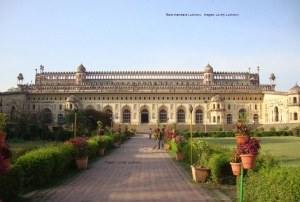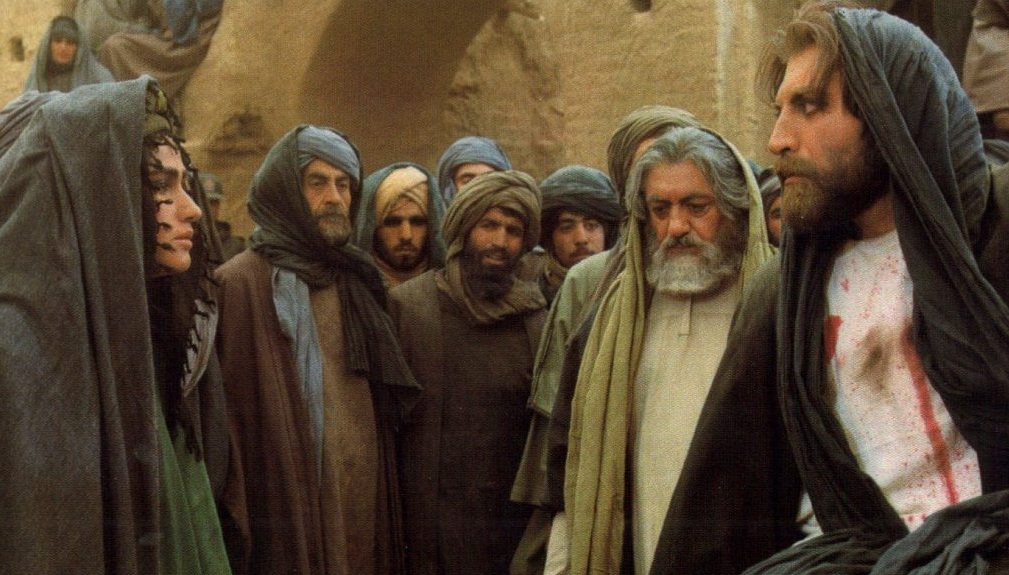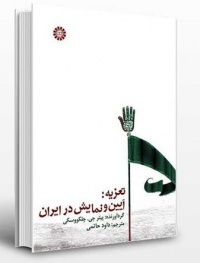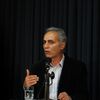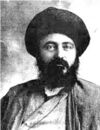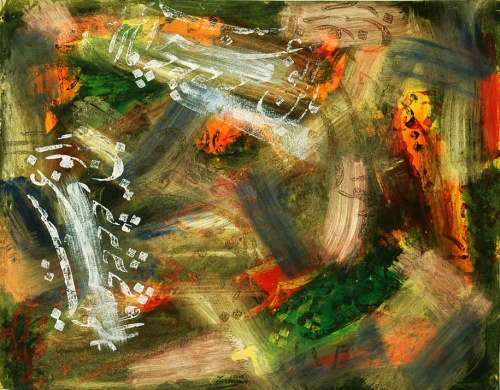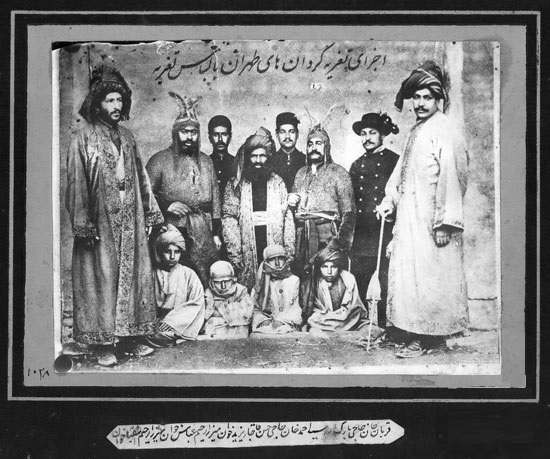- مکتب سقاخانه جریانی هنری بود که در دههٔ 1340 شمسی با استفاده از عنصرهایی از هنر مدرن و برخی از عنصرهای تزیینی هنرهای سنتی و دینی، در ایران شکل گرفت.
- هوشنگ ابتهاج با تخلص سایه اشعاری درباره امام حسین (ع) سروده است.
- امامباره آصف الدوله (در تصویر) که معتبرترین بنا از نوع امام باره است از مهمترین بناهای تاریخی لکهنو به شمار میآید.
- کتاب حسین (ع) از دیدگاه مسیحیت به هفده زبان ترجمه و در پنج دانشگاه و برای دورههای تکمیلی مورد تأیید قرار گرفته است.
- در زمان ناصرالدین شاه قاجار برای ترویج تعزیه کوشش فراوانی شد.
Test: تفاوت میان نسخهها
بدون خلاصۀ ویرایش |
بدون خلاصۀ ویرایش |
||
| (۳۶ نسخهٔ میانی ویرایش شده توسط ۲ کاربر نشان داده نشد) | |||
| خط ۱: | خط ۱: | ||
__NOTOC__ | __NOTOC__ | ||
[[en: | [[en:test]] | ||
{{ | {{mainpage/top | ||
mainpage/top | |||
| link 1 = [[ادبیات]] | | link 1 = [[ادبیات]] | ||
| link 2 = جغرافیا | | link 2 = جغرافیا | ||
| خط ۹: | خط ۸: | ||
| link 5 = ادیان و مذاهب | | link 5 = ادیان و مذاهب | ||
| link 6 = علوم اجتماعی | | link 6 = علوم اجتماعی | ||
}}<div class= | }}<div class="first-column-container">{{Featured Index | ||
Featured Index | | image= | ||
| image= | | imagesize = 300px | ||
| imagesize = | | text = [[آب]] مایه حیات و از اسطورهها و نمادهای مهم فرهنگهای مختلف از جمله فرهنگ شیعی است. آب، نامی عمومی برای مایع شفاف، بیمزه و بیبویی است که انسان و حیوان از آن میآشامند. آب به عنوان یکی از عناصر اربعه یا چهار «آخشیج» (خاک، آب، باد و آتش)، در فرهنگهای گوناگون همواره معانی نمادین و اسطورهشناختی متعدد و متنوعی داشته است. به طور معمول، آب در سه مفهوم به کار برده شده است: اساس شکلگیری جهان، نماد زندگی، آغاز حیات و جاودانگی، و نماد پاکی و پاککنندگی. آب در اساطیر، آیینها و شمایلنگاریها، جدا از ساختار کلیتهای فرهنگی مربوط به آن، همواره مقدم بر هر نقش و صورت و محمل و تکیهگاه هر آفرینشی است. در اساطیر مصری، جهان در ابتدا اقیانوسی از آب بوده است. در اسطورههای بینالنهرین و روایتهای آشوری نیز همه آفریدهها از آمیختن آب شیرین (Apsu) و شوراب (Tiamt) پدید میآیند. در اساطیر یونان، «نرسیس» مظهر آب و پدرش «سیزیف» خدای رودخانه و مادرش «لیریوب» الهه چشمهساران است. یونانیان باستان همچنین آیینها و جشنهایی مربوط به آب و طلب باران داشتهاند از جمله آیین «رودها» که در آن اسبهایی را زنده در میان امواج میافکندند و آنها را به خدایان دریا تقدیم میکردند. | ||
| text = [[ | |||
[[آب|ادامه...]] | |||
}}{{did you know | |||
}}{{ | | image =امام بارهی آصف الدوله.jpg | ||
did you know | | imagesize = 300px | ||
| image = | | text =* [[مکتب سقاخانه|مکتب سقاخانه جریانی هنری بود که در دههٔ 1340 شمسی با استفاده از عنصرهایی از هنر مدرن و برخی از عنصرهای تزیینی هنرهای سنتی و دینی، در ایران شکل گرفت.]] | ||
| imagesize = | * [https://fa.wikihussain.com/view/%D9%87%D9%88%D8%B4%D9%86%DA%AF_%D8%A7%D8%A8%D8%AA%D9%87%D8%A7%D8%AC%E2%80%8C#.D8.A7.D8.B4.D8.B9.D8.A7.D8.B1 هوشنگ ابتهاج با تخلص سایه اشعاری درباره امام حسین (ع) سروده است.] | ||
| text =* [[ | * [[امامباره آصف الدوله|امامباره آصف الدوله (در تصویر) که معتبرترین بنا از نوع امام باره است از مهمترین بناهای تاریخی لکهنو به شمار میآید.]] | ||
* [https://fa.wikihussain.com/view/%D8%A2%D9%86%D8%AA%D9%88%D8%A7%D9%86_%D8%A8%D8%A7%D8%B1%D8%A7#cite_ref-9 کتاب حسین (ع) از دیدگاه مسیحیت به هفده زبان ترجمه و در پنج دانشگاه و برای دورههای تکمیلی مورد تأیید قرار گرفته است.] | |||
* [https:// | * [https://fa.wikihussain.com/view/%D8%B4%D8%A8%DB%8C%D9%87_%D9%88_%D8%A2%DB%8C%D9%86%D9%87:_%D9%85%D8%AC%D9%85%D9%88%D8%B9%D9%87_%D8%B9%DA%A9%D8%B3_%D9%87%D8%A7%DB%8C_%D8%AA%D8%B9%D8%B2%DB%8C%D9%87_%D8%A7%DB%8C%D8%B1%D8%A7%D9%86_%D8%AF%D8%B1_%D8%AF%D9%88%D8%B1%D9%87_%D9%82%D8%A7%D8%AC%D8%A7%D8%B1#.DA.86.DA.A9.DB.8C.D8.AF.D9.87 در زمان ناصرالدین شاه قاجار برای ترویج تعزیه کوشش فراوانی شد.] | ||
* [[ | }}</div><div class="second-column-container">{{Featured | ||
* [ | | image =تصاویر فیلم روز واقعه 8.jpg | ||
* [ | | imagesize = 300 | ||
}}</div><div class= | |||
Featured | |||
| image = | |||
| imagesize = | |||
| text = * | | text = * | ||
* [[ | * [[حسین بن على (ع)]] | ||
* [[ | * [[روضه خوانی]] | ||
* [[ | * [[امام باره]] | ||
* [[ | * [[مسلم بن عقیل]] | ||
* [[ | * [[روز واقعه|روز واقعه (در تصویر)]] | ||
}}{{ | * [[رقیه بنت حسین]] | ||
Works | |||
| image = | }}{{Works | ||
| image =آیین و نمایش در ایران.jpeg | |||
| imagesize = 200px | | imagesize = 200px | ||
| text = | | text = [[تعزیه: آیین و نمایش در ایران]]، کتابی است درباره تعزیه که توسط پیتر جی. چلکووسکی نوشته شده است. ین کتاب، در بیست فصل ابعاد مختلف تعزیه را مورد بررسی قرار میدهد و در واقع چاپ دوم کتابی است که نزدیک به هجده سال پیش با عنوان مقاله آغازین آن، تعزیه، هنر بومی پیشرو ایران، انتشار یافت و مورد پسند پژوهشگران قرار گرفت. اهمیت عمده کتاب در این است که تا این تاریخ، یگانه اثر آکادمیایی بینالمللی در تعزیهشناسی است. | ||
[[ | [[تعزیه: آیین و نمایش در ایران|ادامه...]] | ||
}}</div>{{ | }}</div>{{CirclePersons | ||
CirclePersons | | image1 = حمید رضا اردلان.jpg | ||
| image1 = | | title1 = [[حمیدرضا اردلان]] | ||
| title1 = [[ | | image2 = سیدحسین حوائجی.jpg | ||
| image2 = | | title2 = [[سید حسین حوائجی]] | ||
| title2 = [[ | | image3 = جهانگیر نصری اشرفی.jpg | ||
| image3 = | | title3 = [[جهانگیر نصری اشرفی]] | ||
| title3 = [[ | | image4 = جبار رحمانی.jpg | ||
| image4 = | | title4 = [[جبار رحمانی]] | ||
| title4 = [[ | | image5 = Adibolmamalek.jpg | ||
| image5 = | | title5 = [[ادیب الممالک فراهانی]] | ||
| title5 = [[ | }}{{Featured art | ||
}}{{ | | image = اثر حسین زنده رودی.jpg | ||
Featured art | | imagesize = 500px | ||
| image = | | text = اثر [[حسین زنده رودی]] با ترکیب شعر [[محتشم کاشانی|محتشم کاشانی]] متعلق به [[مکتب سقاخانه]] است. زندهرودی برای نخستین بار در آثاری که در حدود سال 8331 عرضه کرد هنر عامیانه مذهبی را بکار گرفت و امکانات بصری بـالقوه آن را نشان داد. زنده رودی در ابتدای کار سقاخانه با نقشهای متأثر از فاجعه کربلا آغاز کرد ولی پس از مدتی به «خوشنویسی» پرداخت. | ||
| imagesize = | }}{{Featured art big | ||
| text = | | image = تعزیه گردان تهران قدیم.jpg | ||
}}{{ | |||
Featured art big | |||
| image = | |||
| imagesize = 600px | | imagesize = 600px | ||
| text = The curtain used by [[Mirza ali khandan|murshed Khandan]], is illustrated by Ostad (acknowledged master) Hossein Hamedani, and dates back more than 50 years. The length of the curtain (Parde) is about 4 metres, and is one of the largest of its kind. The Parde has many faces and gatherings painted upon it. The Darvish curtains are fixed in its generalities but may be varied in details. | | text = The curtain used by [[Mirza ali khandan|murshed Khandan]], is illustrated by Ostad (acknowledged master) Hossein Hamedani, and dates back more than 50 years. The length of the curtain (Parde) is about 4 metres, and is one of the largest of its kind. The Parde has many faces and gatherings painted upon it. The Darvish curtains are fixed in its generalities but may be varied in details. | ||
}}{{ | }}{{Featured indexes | ||
Featured indexes | | main title = دسترسی به مداخل | ||
| main title = | | column 1 title = مولفین | ||
| column 1 title = | | column 1 category 1 = شاعران | ||
| column 1 category 1 = | | column 1 category 2 = پژوهشگران ایرانی | ||
| column 1 category 2 = | | column 1 category 3 = هنرمندان ایرانی | ||
| column 1 category 3 = | | column 2 title = افراد | ||
| column | | column 2 category 1 = شهیدان کربلا | ||
| column 2 | | column 2 category 2 = قاتلان کربلا | ||
| column 2 category | | column 3 title = اماکن | ||
| column 3 title = | | column 3 category 1 = حرمها | ||
| column 3 category 1 = | | column 3 category 2 = تکیهها | ||
| column 3 category 2 = | | column 3 category 3 = امامبارهها | ||
| column 4 title = | | column 4 title = آثار | ||
| column 4 category 1 = | | column 4 category 1 = کتابها | ||
| column 4 category 2 = | | column 4 category 2 = آثار هنری | ||
| column 5 title = | | column 5 title =آیین و مناسک | ||
| column 5 category 1 = | | column 5 category 1 =آیینها | ||
}}{{ | }}{{صفحه اصلی/فوتر }} | ||
نسخهٔ کنونی تا ۲۸ ژوئن ۲۰۲۱، ساعت ۱۴:۳۸
به ویکی حسین خوش آمدید
- • ادبیات
- • جغرافیا
- • هنر
- • تاریخ
- • ادیان و مذاهب
- • علوم اجتماعی
مدخل برگزیده
آب مایه حیات و از اسطورهها و نمادهای مهم فرهنگهای مختلف از جمله فرهنگ شیعی است. آب، نامی عمومی برای مایع شفاف، بیمزه و بیبویی است که انسان و حیوان از آن میآشامند. آب به عنوان یکی از عناصر اربعه یا چهار «آخشیج» (خاک، آب، باد و آتش)، در فرهنگهای گوناگون همواره معانی نمادین و اسطورهشناختی متعدد و متنوعی داشته است. به طور معمول، آب در سه مفهوم به کار برده شده است: اساس شکلگیری جهان، نماد زندگی، آغاز حیات و جاودانگی، و نماد پاکی و پاککنندگی. آب در اساطیر، آیینها و شمایلنگاریها، جدا از ساختار کلیتهای فرهنگی مربوط به آن، همواره مقدم بر هر نقش و صورت و محمل و تکیهگاه هر آفرینشی است. در اساطیر مصری، جهان در ابتدا اقیانوسی از آب بوده است. در اسطورههای بینالنهرین و روایتهای آشوری نیز همه آفریدهها از آمیختن آب شیرین (Apsu) و شوراب (Tiamt) پدید میآیند. در اساطیر یونان، «نرسیس» مظهر آب و پدرش «سیزیف» خدای رودخانه و مادرش «لیریوب» الهه چشمهساران است. یونانیان باستان همچنین آیینها و جشنهایی مربوط به آب و طلب باران داشتهاند از جمله آیین «رودها» که در آن اسبهایی را زنده در میان امواج میافکندند و آنها را به خدایان دریا تقدیم میکردند. ادامه...
